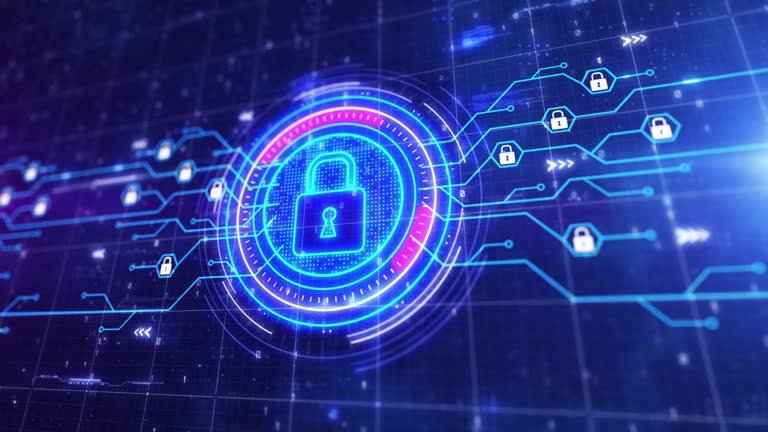In today’s digital age, businesses in Long Island, NY, are facing increasing challenges to protect sensitive data and comply with a variety of cybersecurity regulations. From safeguarding customer information to ensuring compliance with state and federal laws, staying on top of cybersecurity compliance is crucial for businesses of all sizes.
As a business owner in Long Island, NY, understanding the key cybersecurity compliance regulations at both the New York State and federal levels is essential for minimizing risks, avoiding hefty fines, and maintaining trust with your clients. Here’s an overview of the most important regulations affecting businesses in Long Island, NY, and how you can stay compliant.
1. New York State Cybersecurity Regulation (23 NYCRR 500)
One of the most significant regulations businesses in New York State need to follow is the New York Department of Financial Services (NYDFS) Cybersecurity Regulation (23 NYCRR 500). This regulation was implemented to enhance cybersecurity protections for financial services companies, but it applies to a wide range of businesses, including insurance companies, banks, and any organization that handles sensitive financial data.
Key Compliance Requirements:
Cybersecurity Program: Businesses must develop and maintain a comprehensive cybersecurity program tailored to their specific risks.
Risk Assessments: Regular cybersecurity risk assessments must be conducted to identify and mitigate potential vulnerabilities.
Data Encryption: Sensitive data must be encrypted both in transit and at rest to prevent unauthorized access.
Incident Response Plan: Companies must implement a clear incident response plan to detect, respond to, and recover from cybersecurity breaches.
For businesses in Long Island, particularly those in the financial sector, this regulation is critical. If you operate in a regulated industry or handle sensitive financial data, ensuring compliance with 23 NYCRR 500 is a must.
2. SHIELD Act (Stop Hacks and Improve Electronic Data Security Act)
New York’s SHIELD Act (Stop Hacks and Improve Electronic Data Security Act) is another regulation that businesses must adhere to. It was signed into law in 2019 and expands the definition of private information to include biometric data and email addresses, among other things. The law also requires businesses to implement reasonable safeguards to protect data and to notify individuals in the event of a data breach.
Key Compliance Requirements:
Reasonable Data Security Measures: Businesses must implement appropriate administrative, technical, and physical safeguards to protect sensitive information.
Breach Notification: In the event of a breach, businesses must notify affected individuals in a timely manner, following specific protocols.
Data Minimization: Businesses should limit the collection and retention of private information to only what is necessary.
If your Long Island-based business stores or processes private data, it’s crucial to comply with the SHIELD Act to avoid potential fines and legal liabilities.
3. Federal Cybersecurity Regulations (CMMC, NIST, HIPAA, PCI DSS)
In addition to New York State regulations, businesses in Long Island, NY must also comply with federal cybersecurity standards that apply across various industries. Here’s a look at the most important ones:
CMMC (Cybersecurity Maturity Model Certification)
For companies that work with the Department of Defense (DoD) or handle government contracts, compliance with the CMMC is mandatory. This regulation requires businesses to meet specific cybersecurity standards based on their level of maturity, ensuring that sensitive government data is protected.
NIST (National Institute of Standards and Technology) Cybersecurity Framework
The NIST Cybersecurity Framework provides a set of guidelines to help businesses identify, protect, detect, respond, and recover from cybersecurity threats. While it’s not legally binding, following NIST’s standards is considered a best practice for businesses that want to improve their cybersecurity posture.
HIPAA (Health Insurance Portability and Accountability Act)
For healthcare organizations and businesses that deal with medical data in Long Island, HIPAA compliance is a must. HIPAA sets the standard for protecting sensitive patient data and requires businesses to implement strict security measures, such as encryption and access controls, to protect health information.
PCI DSS (Payment Card Industry Data Security Standard)
Any business that processes, stores, or transmits payment card data (like Long Island-based e-commerce stores) must comply with the PCI DSS standards. These regulations require businesses to maintain secure systems and networks, protect cardholder data, and implement strong access control measures.
4. General Data Protection Regulation (GDPR)
While the General Data Protection Regulation (GDPR) is a European Union regulation, it can affect businesses in Long Island, NY, that handle the personal data of EU citizens. The GDPR imposes strict rules on data protection and privacy, and non-compliance can result in significant fines.
Key Compliance Requirements:
Data Subject Rights: Businesses must ensure individuals’ rights to access, correct, or delete their data.
Data Protection by Design: Businesses should integrate data protection measures into their operations from the outset.
Breach Notification: Similar to the SHIELD Act, businesses must notify individuals in the event of a data breach within 72 hours.
Why Cybersecurity Compliance Matters for Long Island Businesses
Cybersecurity compliance is essential for businesses in Long Island, NY, because it not only protects sensitive data but also builds trust with clients and customers. Failing to meet regulatory requirements can lead to costly fines, reputational damage, and loss of customer confidence. Moreover, many compliance standards require businesses to adopt best practices in cybersecurity, which can ultimately improve the overall security posture of your business.
How ETS IT Solutions Can Help
At ETS IT Solutions, we specialize in helping businesses in Long Island, NY navigate the complex world of cybersecurity compliance. Our team can conduct thorough risk assessments, implement strong data protection measures, and ensure your business adheres to state and federal regulations. Whether you’re in finance, healthcare, or any other industry, we have the expertise to help you stay compliant and secure.
If you’re unsure about your business’s compliance with state or federal cybersecurity regulations, contact ETS IT Solutions today to schedule a consultation. We’ll guide you through the process and ensure that your business meets all necessary cybersecurity standards.




